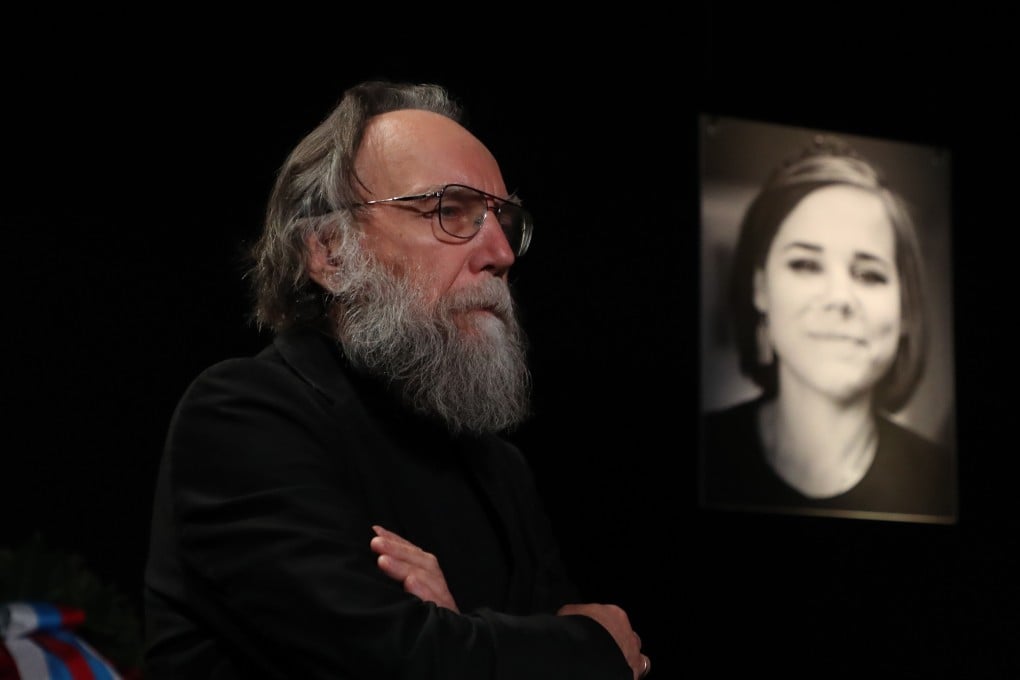My Take | How guilty is ‘Putin’s brain’ over Ukraine?
- The Russian ideologue Alexander Dugin, who has been personally sanctioned by the West and lost his daughter to an assassination probably meant for him, has become a litmus test of Canadian and American hypocrisy

Inside “Putin’s Brain”: The Political Philosophy of Alexander Dugin and Beginning with Heidegger: Strauss, Rorty, Derrida, Dugin and the Philosophical Constitution of the Political, both by Michael Millerman
Russian far-right ideologue Alexander Dugin, who is sometimes described mockingly as “Putin’s brain”, suddenly became the world’s most famous thinker thanks to the Russian invasion of Ukraine. An assassination that killed his daughter in August but which was believed to have been aimed at him lent an even greater conspiratorial aura to Dugin.
I must admit, though, that I bought both books less because of Dugin but more for its controversial author Michael Millerman. At least in Canada, Millerman has drawn a lot of flak for defending Dugin, whom he claims is a legitimate philosopher. The virulent attacks on Millerman by the liberal intelligentsia of Canada are similar to those earlier ones against University of Toronto (UT) psychologist, the world-famous Jordan Peterson. Both cases say a lot about the censorious and hypocritical nature of academia at the UT in particular and of liberal Canada in general.
Liberal censorship
Inside “Putin’s Brain” was published independently this summer, while Beginning with Heidegger - which was published by the European far right Arktos Media in 2020 - was based on Millerman’s PhD thesis at the political science department of UT, one of the most respected academic institutions in North America. After reading both books, I am even less convinced that Dugin is a real philosopher. His Western liberal critics have been mostly right about him being a fascist ideologue who happens to have studied and written a lot about the great German philosopher Martin Heidegger, himself a card-carrying Nazi party member. I would not put Dugin anywhere near the illustrious philosophical company of Heidegger, Leo Strauss, Richard Rorty and Jacques Derrida.
But if Millerman thinks it’s worth his time to devote his literary and academic career to Dugin, he should certainly be free to do so. That’s the problem. Many of his fellow graduate students and professors at the UT’s political science department didn’t think so. As he complained in Inside “Putin’s Brain”, professors protested against his PhD project on Dugin. Except for a few brave souls who helped advise his thesis writing, he was persona non grata at his department when they were not insulting him. At the moment, his translations of Dugin’s works had to pause because of American and European sanctions against the Russian writer. Well, so much for the West’s – and Canada’s - respect for free speech and the free press.
The vitriols against Millerman poured in in August when he wrote to criticise the double standards of the North American media and intelligentsia’s responses to the attack on Salman Rushdie by a Muslim fanatic and the killing of Dugin’s daughter, Darya. Both incidents took place in August. Basically, Rushdie was praised for his “courage” while the Dugins had it coming.
In response, Ronald Beiner, a professor emeritus at the UT’s political science department, wrote a scathing piece in September in the Toronto Star newspaper denouncing Millerman as “a Canadian apologist for Dugin” and the Russian as a fascist who is “pro-genocide”, presumably a reference to the Russian invasion of Ukraine.
